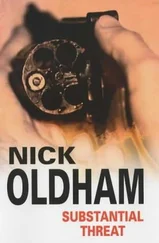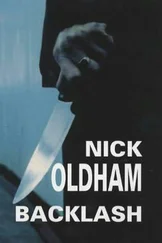But last night something had happened. A human hand had opened the sky with directed malice, reached down among them and killed people, had done so blandly and casually. It didn’t matter that the victims had been by any measure pretty bad people. Anyone who offended against an unknown law could meet the same fate. Anyone within twenty metres of them. Anyone in a car with them or in their house. Anyone who worked with them or overheard whatever appalling secret they had to tell. Or perhaps it was nothing like that at all. Perhaps it had been target practice, or a mistake, and that was what they were worth to the world. It was like living with a capricious god, except that god was out there in the bay and he was just some fucking idiot trying to fake it as best he could, and fuck him. Fuck him for being so rude, so stupid, so powerful and yet so utterly powerless. He could blow up a building. Big deal. Could he put it back together again? No, and that was exactly how the whole thing worked. The chemical men had broken the island and now the United Nations would burn it. No one in the wider world seemed to do anything constructive, no one built or mended. It was lawyers, guns and tax avoidance out there. Real work, reconstruction, was down to ordinary people, and no one ever spent as much money and time on that as they did on ripping things down in the first place, because it was hard.
Beauville whispered to itself, and squirmed away from the light.
He heard voices raised in argument, saw a brief pushing and tussling between two Al Jazeera Persians and a cattleman who had been lounging by a truck. A few others stepped in to head off trouble, but not without some posturing of their own. A moment later, a slim kid passing by nearly walked into the Sergeant and he had to twist to avoid the aggressive shoulder as it twitched towards him. He recognised one of the boxers from the gym, quick as a shark, but too light to take him on, for all that. The kid scowled and opened his arms in a universal gesture of offended adolescent rage. Have a go, then! Go on, grandad!
The Sergeant walked on.
In the end he went to see Arno because he might as well. He was here and he had to keep up appearances, and he was too jumpy to go home and work. Arno seemed to understand what was happening. He had music playing in his office, just loud enough to wash away the tension. It was Bach, endlessly looping and sonorous, and it took the edge off the day somehow. So did the herbal tea Arno made with his own hands. He’d been bombed, too, of course, but he didn’t know the island so he didn’t care. In any case, he probably got bombed all the time. He was a military investigator, and his work would go where the wars went. The Sergeant didn’t make the mistake of laughing at the Italians. Any country could make soldiers. Bravery was not choosy about where you were born. Generals were harder to come by, and good political leadership even more so. Dirac said Arno was a soldier, and that was that.
Arno’s people were as good — or, given what they were doing here, as bad — as he was. There was a Dane called Ólafsdóttir, a broad-shouldered woman with a soft, cherubic face and maternal eyes who nonetheless was his deputy. She had spent most of her time pottering around the markets and the waterfront, buying bits of fabric from the weavers who sat on their porches. No doubt she knew the card-players by now, too, and had been blessed by the sweepers. Probably she had talked flowers with them, swapped hints about aphids. She could talk to anyone.
Guillaume was even worse. A lanky Frenchman, he was an endurance runner, and he was just about to go running in the mountains. It was a scouting trip, an orientation. He wore strange shoes which were almost slippers, with little toes, and looked to be able to run on and on for ever. He had run in the Copper Canyons on the Mexican border, Ólafsdóttir whispered as Guillaume trotted out of the door, and he had come third in the Leadville race. That was 80km long and it started at 3000m above sea level. It would take, the Sergeant judged, about an afternoon for the young men of Beauville to discover that this guy twice their age could outrun them on their home terrain, and by evening they would be begging him to teach them, showing him the backtrails. He’d know the island inside out in a week.
There were others whose skills were more cerebral, who were no doubt equally to be feared. Analysts, and more than should be necessary, the Sergeant felt, to turn in the inevitable cover-up at the end of all this. It was wasteful. It was needlessly finicky. There were a thousand places in the world where this kind of effort would make a real difference. Christ, he’d lived in many of them, grown up in one. He imagined Arno turned loose on the petty crimes — and the serious ones, yes — of his old home town. A horde of bastards legging it over the back fence, only to find that Arno, unlike your average TV copper, had considered that possibility and taken steps to provide against it.
‘I blame the government,’ he muttered to himself, then realised how much he sounded like everyone who has ever been arrested for something of which they were unequivocally guilty.
Arno was pleased to receive him, or at least he said he was. His grave face gave only the faintest hint of reaction, and the Sergeant briefly wondered if he had nerve damage and couldn’t smile properly. ‘How’s it going?’ he asked the Italian.
‘Slowly,’ Arno said, with the air of one who is pleased to bitch about life to someone who’ll understand. ‘The video footage has been messed with before release. I thought we could get biometric data, run it against the files we hold for Mancreu-based personnel.’ Shit. Could you? ‘But whoever released it does not want that to happen. The broadcast material has been substantially reworked. I could not tell you at this point whether the Tiger Man is five foot or six foot tall. In the footage he is both.’
‘You can’t just,’ he waved a hand, ‘clean it up?’
Arno crinkled. Still not an actual smile, but near enough. ‘Like CSI Miami ? I like that show too. No. If there is no data, we cannot make more. With the original recordings, maybe. Not with what we have.’
‘Does that mean it might not even be real at all?’
Arno shook his head. ‘It happened. Maybe not exactly like it looks. But it happened. There was a person who did those things.’
‘And did them at the time we’re supposed to think they happened? It’s not staged?’
‘That. . is a much more interesting question. I spoke to Pechorin at some length. He is remarkably resistant to being helpful. So much so that one feels he has orders. You see?’
The Sergeant nodded. ‘When I was talking to the men who died last night,’ he said after a moment, ‘there was a name. Bad Jack. It’s supposed to be a local king of the underworld. The fellow I was talking to, I held his hand over a map because he didn’t want to talk to me.’
‘Over a map?’
‘Yes.’ Uncomfortable. Not torture. Duress, maybe.
Arno seemed to approve. ‘Not a candle flame. In this day and age that’s. . chivalrous.’
‘He pulled away from the harbour and the shanty.’
‘The access to the water and the poor part of town.’ Arno nodded. ‘That was well done. Bad Jack,’ he repeated to an analyst, and the man immediately opened a new file. This room was a map of the island, the Sergeant realised, and there were fewer and fewer blank spaces on it.
He felt a chill. ‘I don’t suppose the satellite data was any good?’
Arno tutted. ‘Bad coverage.’ Whether it was too bad to be any use was not clear. Arno muttered ‘bad’ a few more times, then: ‘Bad Jack. Does Jack know that you know?’
The Sergeant considered who had heard him say the name: the dead men, the marine on guard duty, the boy, Dirac, Kershaw, the assistant. No one else. ‘Maybe. I wasn’t careful. On the other hand, if he does know, he has very good hearing. Too good.’
Читать дальше
Конец ознакомительного отрывка
Купить книгу











